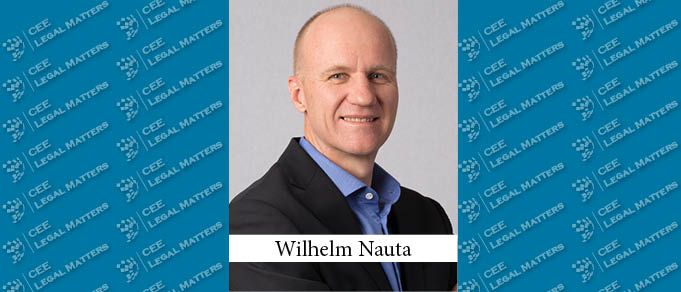Hyprop Investments – South Africa’s largest listed specialist shopping center Real Estate Investment Trust – operates a portfolio of premium shopping centers in South Africa, other countries of sub-Saharan Africa, and Southeastern Europe. Hyprop’s six current investments in SEE include two shopping malls in Zagreb and one each in Sofia, Podgorica, Belgrade, and Skopje. Hyprop is internally managed and headquartered in Johannesburg.
We spoke to Wilhelm Nauta, the Executive Director and Chief Investment Officer of Hyprop, to learn about the company’s interest in and strategy for CEE.
CEELM: Tell us, just in a few sentences, what Hyprop is, and what it does.
Wilhelm: Hyprop is a Real Estate Investment Trust (REIT) that has been listed on the Johannesburg Securities Exchange (JSE) for more than 30 years. A REIT enjoys certain tax benefits for as long as it primarily invests in property, pays out most of its free cash as dividends, and does not exceed certain gearing limits. Hyprop focuses on the retail sector, especially large shopping centers. Hyprop currently has a portfolio of nine large shopping centers in South Africa, six large shopping centers in CEE (valued at EUR 800 million), and four shopping centers in Sub-Saharan Africa (outside South Africa). Hyprop’s stake in the CEE portfolio is held through Hystead, a JV in which Hyprop has a 60% stake.
CEELM: What is your personal background? How did you get to your current position, and what has your interaction with CEE/Eastern Europe been in particular?
Wilhelm: I am a qualified Chartered Accountant and I have worked in investments and related fields for the past 20 years, including the stockbroking, private equity, and unlisted and listed property industries. I was appointed by Hyprop in 2016 following the company’s strategic decisions to expand into CEE, reduce exposure to Africa (outside of South Africa), and divest its non-core assets. I have been integrally involved in changing the geographical and sectoral asset allocation of the group and helping it become a retail specialist, increase exposure to CEE, and, again, reduce exposure to Africa.
CEELM: How does the legal function at Hyprop work? Where is it based? Do you have a separate team in and for Eastern Europe?
Wilhelm: Hyprop has a legal executive that is based in Johannesburg, but for cross-border transactions Hystead makes use of top legal firms in the respective countries. Hystead has its own asset management and financial teams based in Europe.
CEELM: How does Hystead structure its investment strategy for Eastern Europe? By geography, or sector, or simply on an ad hoc basis, as it learns of good opportunities?
Wilhelm: Hystead’s strategy is to invest in large, dominant shopping centers in Eastern Europe’s main commercial cities. To date, we have mainly invested in the Balkans, but we would consider opportunities in Central Europe at the right price. We find the yields of the more developed countries in CEE to be quite low relative to the funding cost. This is unlike the Balkans, where the spread between funding cost and initial yields are often 350 basis points or more.
CEELM: What does Hystead’s CEE team look like? Where are the representatives based who explore and identify good opportunities, and how many are there?
Wilhelm: Hystead has a chief operating officer and chief financial officer based in the Netherlands and Bulgaria, respectively. They are supported by a financial team in Bulgaria and property management teams on-site at each mall.
CEELM: How does Hystead identify good opportunities in CEE/Eastern Europe?
Wilhelm: Most of Hyprop’s opportunities come through broker networks or direct contact with potential sellers, by virtue of Hystead becoming known in the market after having acquired six malls in the last three years in the Balkans.
CEELM: How does Hystead select external counsel for its deals? Is there a panel, or is outside counsel selected on a case-by-case basis?
Wilhelm: Word of mouth is the only reference used for selecting legal counsel. Hystead has used a legal network called South East Europe Legal Group to good effect. Polenak Law Firm in North Macedonia, Boyanov & Co in Bulgaria, and Divjak, Topic & Bahtijarevic in Croatia have provided good service to Hystead.
CEELM: Does Hystead have anything exciting going on in CEE now?
Wilhelm: Yes, we do have exciting plans, but sometimes good plans take time to come to fruition. It’s been eighteen months since Hystead’s last acquisition in Eastern Europe but we are definitely still bullish on the region and would look to increase exposure to the region.
CEELM: To finish on a personal note, what’s your favorite memory of CEE?
Wilhelm: One of my best experiences in the region was a night in Old Belgrade. I love Belgrade as it is beautiful and vibrant, with excellent food. A visit to the beautiful Sveti Stefan on the Montenegrin coast also stands out, but unfortunately the prices there are so steep that you can only drink tap water and enjoy the view. To my shame I have never been to Croatia’s beautiful coastal cities, as I only visit our two malls in Zagreb due to a very tight time schedule. A trip through the region on a bicycle one summer is high on the bucket list!
CEE Legal Matters would like to thank Denise Hamer of Kinstellar for introducing us to Wilhelm Nauta.
This Article was originally published in Issue 6.10 of the CEE Legal Matters Magazine. If you would like to receive a hard copy of the magazine, you can subscribe here.

















